Peace as plurality and a critical sense.
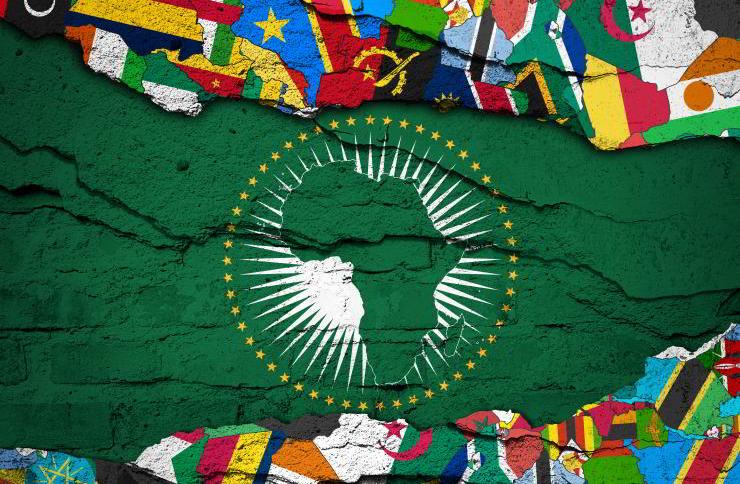
Sometimes one has the impression that personal honour and prestige are considered much more important than the truth and interests of the community. And so, one is ready to sacrifice the entire community, the basic principles of common life and even the lives of others for one’s interests.
This is a true alienation of one’s freedom. We must ask ourselves how it is possible to defend our freedom even at the cost of our life’s blood. Only based on a good education of the community to freedom can we create communities capable of interacting with others rationally and peacefully, avoiding the use of violence. Contemporary Africa is made up of “Nation-States”, each of which has a geographically determined space, created in specific historical circumstances.
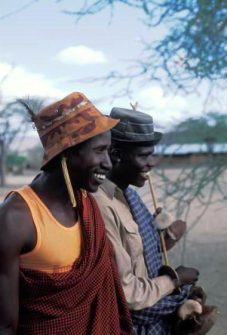
Kenya. Turkana. Each state is internally made up of different cultural or religious groups and different ethnic groups. File swm
Each of these States is internally composed of different cultural or religious groups and different ethnic groups. It is normal for there to be tensions and conflicts of interest between the different groups. The political theory developed in Europe during the Age of Enlightenment sees the State as a community of individuals who have inalienable rights, but in the pursuit of their interests, have come together to create structures of common life through agreement. It insists on the dignity and rights of each individual. In this perspective, conflicts are seen above all in terms of the legitimization of power, the defence of one’s rights and the pursuit of one’s interests. While not denying the importance of these factors, it seems to us that the social contract by itself is inadequate to found the community upon it. It ignores natural communities such as family, kinship or even ethnicity. The basis of the community is the relationship or rather relationality.
While not excluding dispositions, such as friendship, love, and altruism, relationality is not limited to them. It does not depend on the sympathy or good feelings that one has towards another. It is based on qualities such as a sense of responsibility for one’s actions, a sense of duty towards those who depend on us; and loyalty to those who have committed themselves, and exposed themselves for others. It is based on respect for one’s traditions and those of other cultures and on the recognition that we all share the same humanity. Going beyond individualism, it must be said that the nation is ultimately a community of communities, since the nation is not a conglomeration of individuals, but is constituted by a variety of ethnic groups, cultures and religious groups, even by a succession of generations.
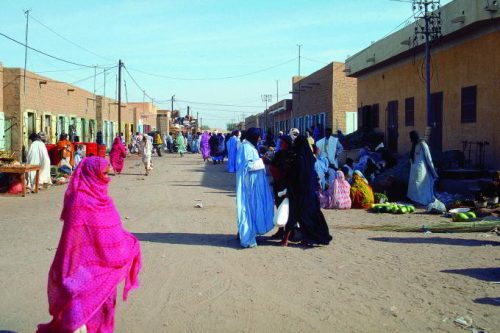
Mauritania. The nation is ultimately a community of communities. File swm
In a nation, people are not only related as individuals but also as members of specific groups, each with its own identity. Each group tends to protect its own identity and demands to be recognized and respected by others. Certainly, the group must never stifle the freedom of the individual in the name of preserving the group’s identity, but the group has the right to be recognized, taken into consideration and respected. It is the lack of respect or recognition of groups as such that leads to tribal violence. It is in this context of the nation conceived as a community of various communities that a conception of democracy based on the principle of the majority must be revised, since in such a system a majority community can always democratically impose its will on the minority. Already within the European democratic systems, the weakness of the principle of the majority has been realized and some are already talking about strong or deep democracies.
It is a question of developing institutions and structures complementary to liberal democracy, in which everyone can actively participate in the discussion and contribute to the development of politics and decision-making that affects each member. Therefore, not only individuals but entire communities must be taken into consideration.
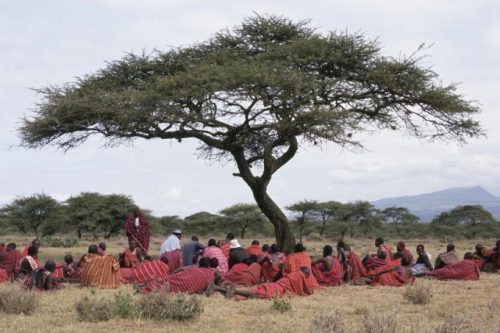
Kenya. A group of Maasai under the acacia tree. The African ‘Palaver’ highlights the principle of participation.
The African ‘Palaver’ highlights this principle of participation well. A participatory democracy based on the ‘Palaver’ will be different from a representative democracy.
Some think that the State must be above the Tribes and religions and therefore neutral towards them. But neither the Tribe nor religions can be confined to the private space at the level of the individual and groups. No true believer and no Tribe would accept this, and rightly so on the basis of their own community and social dimension. There should be an interrelation between the various religious and ethnic identities and the State. The challenge of governing consists precisely in this: trying to converge the different interests of groups and individuals in view of the common good. This is where the different African religious and cultural traditions should intervene. They can be invested for the defence of the common good and of the spiritual values that govern public life and that the State must promote.
The State should intervene, even when it comes to religious matters and Tribes, to re-establish peace and social cohesion. It seems to us that this is a fundamental fact to be taken seriously into consideration in contemporary Africa. In fact, the contemporary African situation is complex. On the one hand, we find ourselves with a certain lay, secular elite, who no longer want to hear about religions and tribes in matters of State. Religion and Tribe must be excluded from public life and there is no need to take these parameters into account since they are the source of violence in society. Ultimately, they are perhaps opposed to too great an interference of ecclesiastics in politics and to a great ideologization of the tribe. However, religion is not clericalism, nor can the community dimension of the person incarnated be reduced in reference to the
tribe and its deviations.
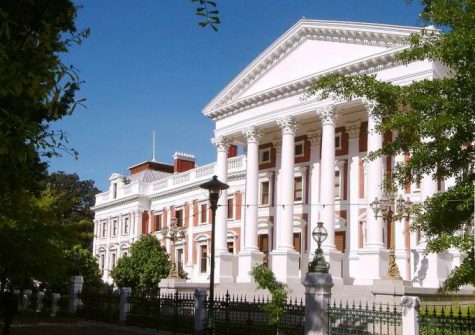
South Africa. Cape Town. House of Parliament. The state should intervene, even in religious and tribal matters, to restore peace and social cohesion. CC BY-SA 3.0/I, PhilippN
On the other hand, we also have fundamentalist readings of the tribe and religion. Fundamentalism in Somalia, Sudan and Nigeria allows us to realize this: very often, for political propaganda, it highlights the tribal or religious element as a criterion of public and political life. In this fundamentalist reading, democracy is seen as the domination of the majority tribe or religion over others. This is clearly seen in the tendency to falsify statistics when one wants to know how many members a religion or tribe has in a specific African country. Everyone immediately understands what is at stake and the numbers quickly inflate. The notion of the State as a community of various communities intends to oppose precisely such phenomena. The ‘Palaver’ intends precisely to promote the construction of multicultural communities. One of the obstacles to dialogue in the Palaver is the patterns of thought and stereotyped prejudices about others. Very often we tend to characterize others starting from the groups to which they belong. And the group itself is qualified as either enemy or friend, superior or inferior. Relations between groups are thus determined either by economics or by political or historical patterns of influence or domination. These attitudes can and do block dialogue in modern Africa. We need to get out of these stereotyped patterns.
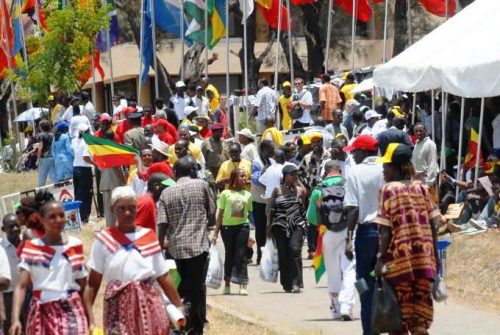
The ‘Palaver’ intends to promote the construction of multicultural communities. File swm
Dialogue is sometimes hindered by our stubborn refusal to recognize the desire of others to be recognized, respected and accepted as a group in their otherness and to have a social space in which they can live and develop their identity. Instead, we limit ourselves to tolerating them without accepting them or we try to be inclusive in a relationship of domination – subordination. The others then try to affirm their identity in a revolutionary or violent way. It is clear that here a prerequisite for peace is a true will to recognize, respect and accept the other as different. Furthermore, it is necessary to create places of experience of collaboration and multi-ethnic work trying to promote justice and community. All this must be placed in the context of the ‘Palaver’ as a tool for resolving and preventing conflicts. But how can this happen in practice? (Open Photo: African Union flag and African flags, maps painted on an old wall background. Shutterstock/patrice6000)
(J.M.)



